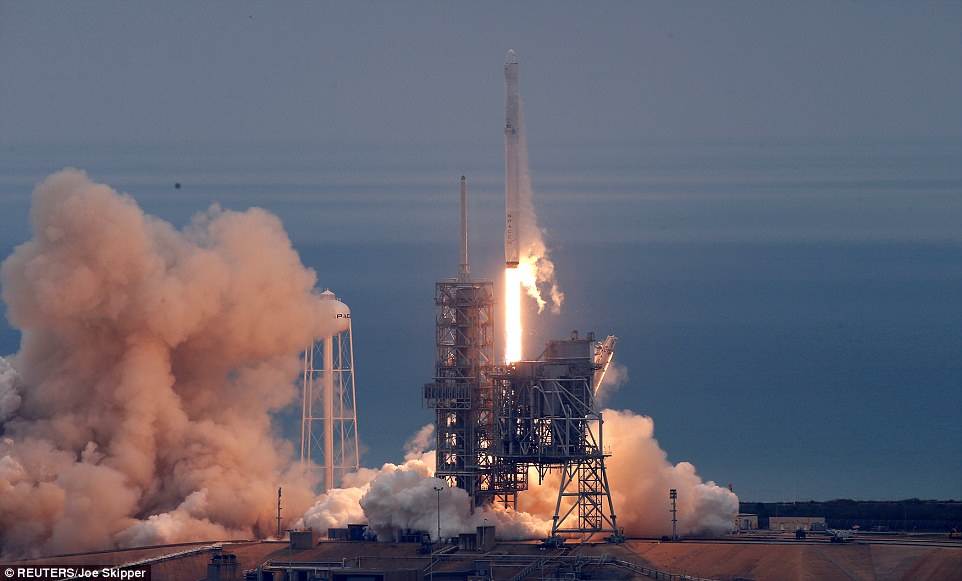SpaceX just became the first private company in history to make use of NASA’s launch pads.
SpaceX’s Falcon 9 rocket blasted off from a NASA launchpad yesterday, reaching orbit before successfully returning to the Earth. The Sunday launch comes a day late, having been scrubbed on Saturday with 13 seconds left on the count down, due to an improperly angled thruster nozzle. It is the company’s tenth resupply mission to the International Space Station (ISS), and the first time they’ve used NASA’s LC-39A launchpad since leasing it from NASA in 2014. The launch pad is where many historic flights have taken off from, including Apollo 11, the mission that first put humans on the moon. This launch however, is the first time any private venture has used a NASA facility for launching a rocket.
The two-stage rocket was designed for moving satellites into orbit, and was this time carrying the Dragon spacecraft. SpaceX reported the Dragon as being in “good orbit” shortly after take-off. While the Falcon 9 has since returned to Earth, the Dragon remains in orbit and is now transitioning to rendezvous with the ISS. It is expected to arrive on Wednesday.

Sunday’s launch marks a success after two previous failed attempts. Last September, the Falcon 9 and its payload blew up on the launch pad, and in June 2015, the rocket only made it a little further, exploding shortly after take off. As they say, launching a rocket is basically just setting off a bomb and hoping you’ve designed it well enough to only explode downwards. Sometimes, it doesn’t.
SpaceX is one of several companies trying to pioneer a new space race. CEO Elon Musk is pushing for the commercialization of space exploration and the industry is expected to see significant growth in the coming years. Both the Falcon 9 rocket and the Dragon spaceship “were designed from the outset to deliver humans into space and under an agreement with NASA, SpaceX is actively working toward that goal,” the company stated on its website.
source: Space.com





